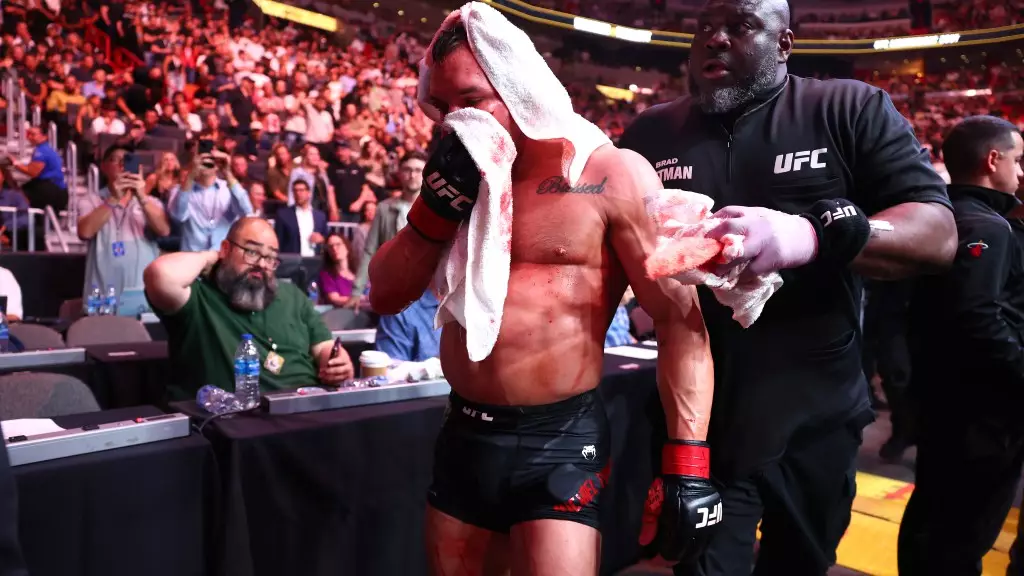In the world of mixed martial arts (MMA), few narratives resonate more profoundly than that of a fighter grappling with consecutive defeats. Michael Chandler’s recent struggles—and his current record of 2-5 in the UFC—echo the challenges faced by many esteemed fighters, including Henry Cejudo. Chandler’s loss to Paddy Pimblett at UFC 314 exemplifies the uphill battle that so many skilled athletes face in a sport where glory and despair often intertwine. Cejudo, who himself finds talent eclipsed by recent setbacks, offers a sobering reflection on the harsh realities of competition in the octagon.
The Weight of Expectations
Chandler’s situation is particularly disheartening. As a former Bellator champion, the expectations for him were sky-high, suggesting that he would seamlessly transition into the UFC’s elite ranks. However, expectations can be a double-edged sword. By constantly battling against titans like Charles Oliveira and Dustin Poirier, Chandler’s competitive spirit has been a double-edged sword. After losing significant bouts, it becomes easy to question whether he has exhausted his potential. Cejudo believes that a pivotal decision looms: should Chandler step back and reconsider his path, or push through for redemption?
The emotional toll that accompanies a string of defeats cannot be understated. For athletes accustomed to the thrill of victory, facing three successive losses can ignite feelings of insecurity and doubt. Cejudo empathizes with Chandler, pushing for introspection and acknowledgment of the difficult reality that often accompanies a fighter’s career.
The Dangers of the Crowd-Pleasing Mindset
One critical observation made by Cejudo centers on Chandler’s penchant for entertaining fans at the expense of his own fight strategy. The concept of being a “crowd pleaser” has become increasingly significant in modern MMA discussions. While engaging performances can heighten fan interest and generate revenue, they often lead fighters to adopt reckless strategies that don’t prioritize personal safety or efficiency. It’s a reminder that the octagon is unforgiving; the desire to entertain can lead to detrimental consequences, and Cejudo’s assertions highlight how this fixation might have hindered Chandler’s career.
When Cejudo compares Chandler to Mike Perry, he’s effectively pointing to a recurring theme in MMA—a warning that talent and showmanship alone cannot secure longevity or success. The sport’s landscape often rewards those who can strategize and adapt in high-pressure scenarios, rendering the appeal of merely providing entertainment secondary.
Rethinking the Future
As Chandler contemplates his next steps, the pressures of the UFC magnify. The message from Cejudo is not merely one of sympathy; it’s an urgent call for evolution. Fighters must utilize both their physical attributes and their mental acuity to navigate the harsh realities of their careers. The question remains: will Chandler heed the signs and potentially transition into a new phase of his career, or will he stubbornly chase glory amidst adversity?
Ultimately, the current landscape in MMA is steeped in potential yet rife with peril. For fighters like Chandler, the path to greatness isn’t solely defined by victories but by the reflective decisions made between bouts.

